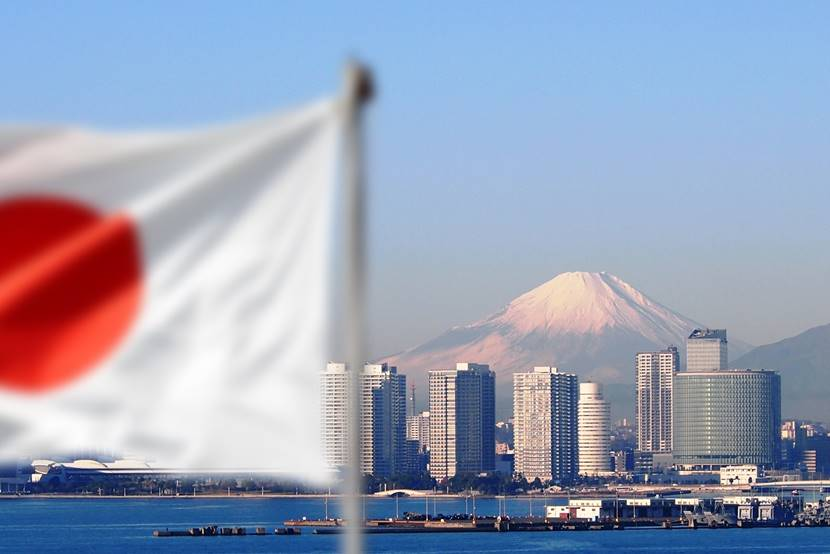
Japan's cabinet has approved a massive economic stimulus package that will spend more than 17 trillion yen to combat inflation and boost economic growth. Some analysts pointed out that the Japanese government's move has both economic and political purposes, but in the long run the stimulus effect on the economy may be limited.
According to a document released by the Cabinet Office on November 2, the stimulus package includes tax cuts and subsidies for low-income households. Among them, the Japanese government plans to reduce individual income tax and resident tax at one time next year, totaling more than 3 trillion yen. In addition, the new plan will provide subsidies for businesses and extend subsidies previously introduced to cope with rising oil and electricity prices.
To support the plan, the government will draw up a supplementary budget of 13.1 trillion yen this fiscal year. Together with investment from local governments and the private sector, the government expects to expand the total size of the stimulus package to Y37.4tn.

Fumio Kishida, prime minister, says fiscal soundness can only be brought about by economic growth. He has previously stressed that he will put the economy first. The government expects the new plan to boost annual economic growth by about 1.2 per cent.
In fact, Japan's growth figures do not look bad on the face of it. By the second quarter of this year, Japan's real GDP had been positive for three quarters from the previous quarter, with exports up 3.1 per cent in the third quarter. From July to September, Japan's manufacturing purchasing managers' index (PMI) remained below the 50.0 line between expansion and contraction, but the services PMI came in at 53.8, 54.3 and 53.8 respectively. Japan's unemployment rate also remained low from July to August.
So why did the Japanese government launch a massive stimulus package? Many media analysis pointed out that Kishida's move may contain both economic and political considerations.
On the economic front, inflation is rising in Japan because of the pass-through effect of higher prices for imported goods. As of September, inflation had been above 2 per cent for 18 consecutive months. Rising prices have reduced real incomes. As of August, real wage earnings in Japan had fallen year-on-year for 17 consecutive months. The decline in purchasing power of residents has led to insufficient domestic consumption power, and real household consumption has declined for six consecutive months year-on-year. One of the aims of the new round of stimulus is to boost people's spending power and stimulate domestic demand.
In terms of politics, the latest poll in Japan shows that the support rate of the Kishida Cabinet has fallen to 26.9%, hitting a new low since it took office, and it is in "dangerous waters". Kishida's approval ratings have not improved significantly since he reshuffled his cabinet in September, amid growing discontent over his handling of issues such as the economy. The LDP also fared poorly in two parliamentary by-elections in late October.
It was in this context that Kishida said at the time that he would fight rising prices through measures such as tax cuts and the extension of subsidies. Naturally, the launch of the new plan is also hoping to boost the support rate of the Kishida Cabinet.

For the Kishida Cabinet's new plan, some Japanese economists believe that it has a certain effect on the economy, but the effect may not be as optimistic as the Japanese government estimates. Some opposition lawmakers think the plans are coming too late. There are also doubts that the Kishida government's combination of tax increases and tax cuts may only end up causing fiscal chaos.
In the eyes of analysts, the Japanese government's new plan attempts to stimulate the economy through "flood irrigation", but this method has been used in the past, the actual effect of the Japanese government has been very limited. Japan already has one of the highest government debt burdens in the world, and further tax cuts will only add to the fiscal burden. Moreover, loose monetary policy and other factors are likely to cause the yen to continue to weaken, reducing people's purchasing power.
In the long run, Japan's lack of economic growth momentum is related to factors such as an aging population and labor shortage, as well as the lack of new growth points for the Japanese economy. Japan's Ministry of Internal Affairs and Communications estimates that the proportion of the population over the age of 65 is likely to hit another record high this year. This structural flaw is the key to Japan's economic development.
At present, the most direct way to reduce inflation and promote the appreciation of the yen is to raise interest rates. However, due to the high debt burdens of governments and companies, raising interest rates could lead to a fiscal crisis for governments and higher borrowing costs for companies. Although the Bank of Japan somewhat reversed its low interest rate policy in late October, reversing the yen's decline may not be enough.

報告顯示,中國電力投資加速增長,預計2024年電網基建投資將超過5300億元。
近日,市場迎來了一則引人注目的消息:工業巨頭3M公司(MMM.N)在本周五公布了其季度業績報告,隨後股價飆升至近兩年來的
最近,外媒給OpenAI算了筆賬,今年可能要血虧50億美元。
近日,巴黎奧運會和世界鐵人三項協會聯合發布了一項重大決定,宣布因塞納河水質污染問題,原定於近期進行的奧運會鐵人三項首次下
當地時間7月18日,法國巴黎發生了一起令人震驚的持刀襲警事件。
近期,一則重大消息在國際舞臺上引起軒然大波,馬來西亞宣布加入金磚國家。
調查發現,互聯網和智能手機的使用幹擾了韓國近五分之一學生的生活。